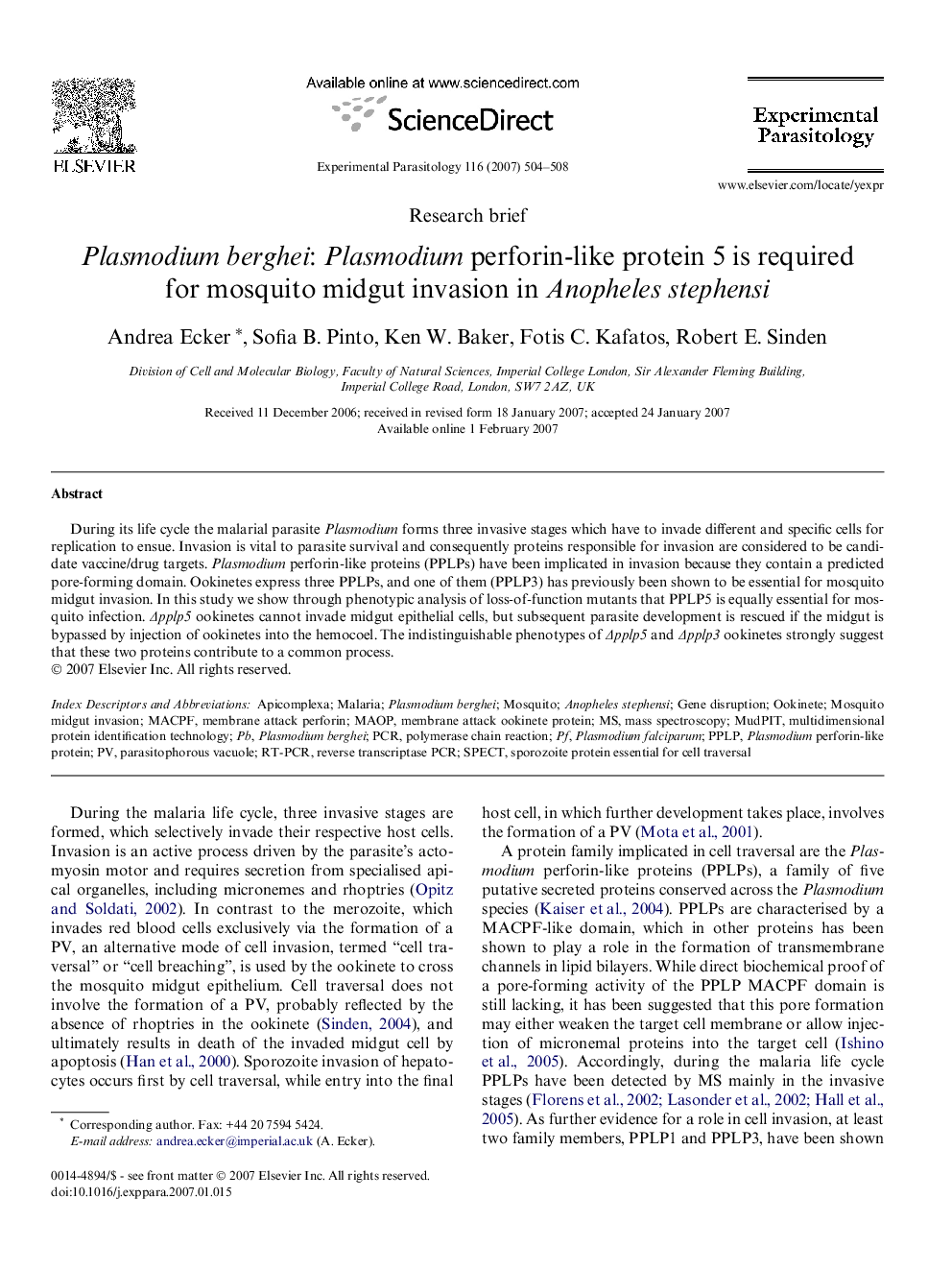| Article ID | Journal | Published Year | Pages | File Type |
|---|---|---|---|---|
| 6292436 | Experimental Parasitology | 2007 | 5 Pages |
Abstract
During its life cycle the malarial parasite Plasmodium forms three invasive stages which have to invade different and specific cells for replication to ensue. Invasion is vital to parasite survival and consequently proteins responsible for invasion are considered to be candidate vaccine/drug targets. Plasmodium perforin-like proteins (PPLPs) have been implicated in invasion because they contain a predicted pore-forming domain. Ookinetes express three PPLPs, and one of them (PPLP3) has previously been shown to be essential for mosquito midgut invasion. In this study we show through phenotypic analysis of loss-of-function mutants that PPLP5 is equally essential for mosquito infection. Îpplp5 ookinetes cannot invade midgut epithelial cells, but subsequent parasite development is rescued if the midgut is bypassed by injection of ookinetes into the hemocoel. The indistinguishable phenotypes of Îpplp5 and Îpplp3 ookinetes strongly suggest that these two proteins contribute to a common process.
Keywords
Related Topics
Life Sciences
Immunology and Microbiology
Parasitology
Authors
Andrea Ecker, Sofia B. Pinto, Ken W. Baker, Fotis C. Kafatos, Robert E. Sinden,
